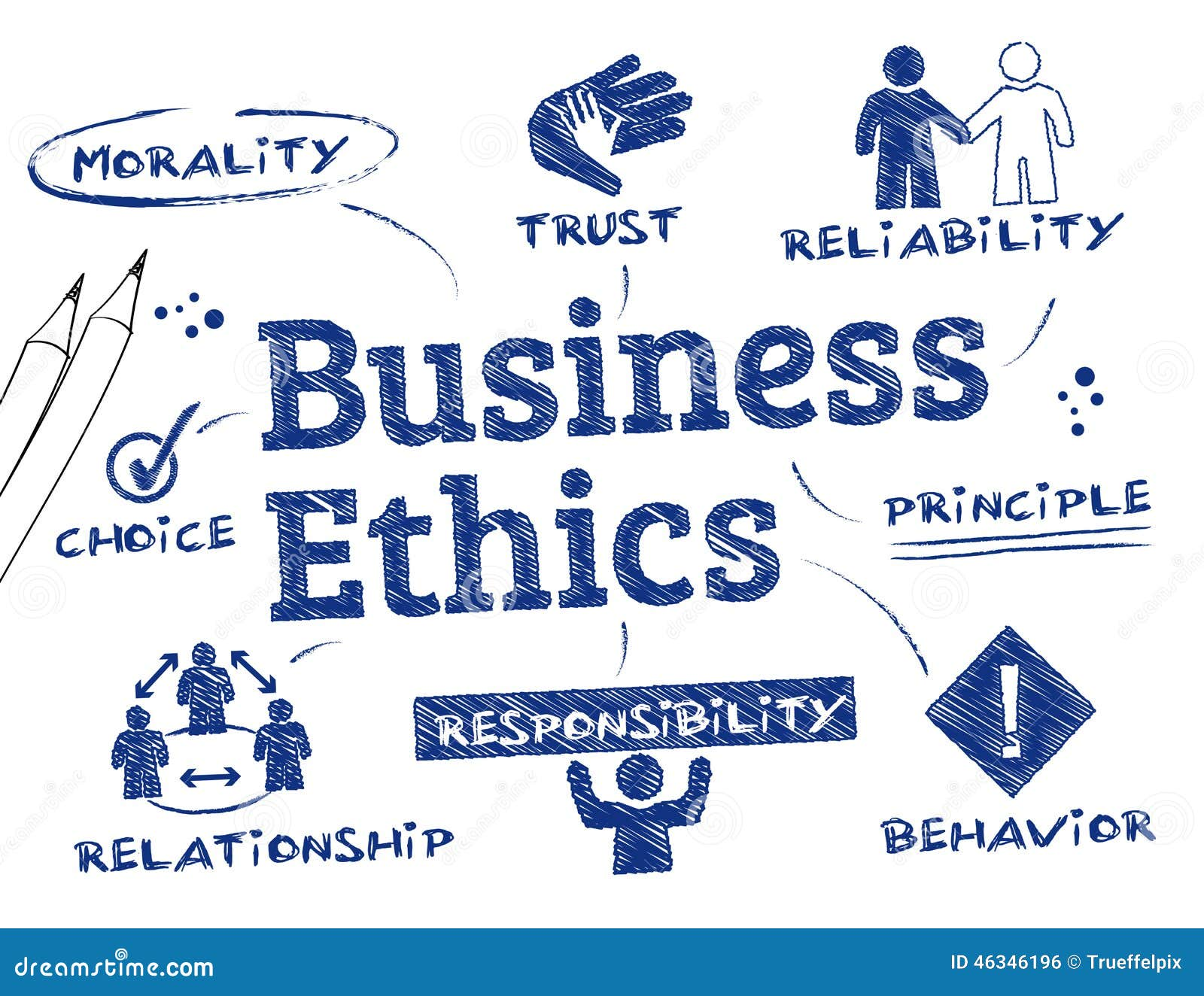Business ethics play a crucial role in guiding the decision-making process for today’s business leaders, impacting how they navigate complex moral dilemmas. With high-profile cases like those of Sam Bankman-Fried and Elizabeth Holmes, the importance of ethical decision making has never been more apparent, as severe consequences often stem from a lack of accountability. Joseph Badaracco, a prominent figure in this field, emphasizes that ethical issues now require a nuanced approach, as the business landscape evolves with technological advances and international complexities. His insights shed light on how leaders can cultivate strong moral principles while aiming for managerial effectiveness. Ultimately, understanding and implementing business ethics fosters a culture of integrity, accountability, and trust in any organization.
The concept of ethical conduct in business is more than just a set of rules; it embodies the moral compass guiding executives through intricate challenges. As organizations face a myriad of legal and social responsibilities, leaders are tasked with reflecting on their choices and the wider implications of those choices on stakeholders. This dynamic environment necessitates the reassessment of decision-making strategies, allowing for a fresh perspective on accountability and ethical considerations. By delving into the realm of responsible corporate governance, business professionals are better equipped to promote fairness and transparency. Ultimately, the discourse around corporate morality is pivotal in shaping a sustainable business ethos that resonates across industries.
The Evolution of Business Ethics
In the past three decades, the understanding of business ethics has experienced a significant transformation. Initially, it primarily revolved around moral philosophy principles like utilitarianism and deontology, taught in an academic context for straightforward applications. Today, however, business ethics has shifted towards a more context-driven approach, focusing on real-world scenarios faced by business leaders. Ethical dilemmas are no longer black-and-white; they exist within a myriad of gray areas influenced by technological advancements and global interactions. Joseph Badaracco highlights this evolution by emphasizing the need for a bottom-up perspective where circumstances shape the ethical guidelines businesses adopt, rather than relying solely on top-down philosophical doctrines.
Moreover, the increasing complexities of international business relationships have introduced novel ethical challenges that require a nuanced understanding of accountability. Modern business leaders must navigate intricate interactions with various stakeholders, including regulators and civil society, making ethical decision-making all the more pressing. The role of business ethics has thus expanded beyond merely satisfying legal requirements to encompass a broader concept of responsibility and societal impact. The changing landscape mandates that executives not only consider profitability but also align their corporate strategies with ethical standards that reflect societal values.
Strategies for Ethical Decision Making
In an increasingly complex business environment, decision-making processes must evolve to uphold ethical standards. Joseph Badaracco suggests employing a thorough analysis of situational factors to guide executives in discerning what constitutes ethical responsibility. By providing decision-makers with critical frameworks for assessing risks, responsibilities, and potential outcomes, they can cultivate a clearer understanding of what ‘right’ looks like. This involves engaging with diverse perspectives and acknowledging the intricate interplay of various legal and ethical obligations — a pivotal strategy for fostering sound business practices.
Additionally, the approach to ethical decision-making has been revolutionized by the integration of reflection and critical thinking into the corporate culture. Business leaders are encouraged to take a step back from immediate pressures and reflect on their core responsibilities and values. Techniques such as engaging in thoughtful discussions with trusted colleagues or taking time for personal reflection can significantly enhance clarity in decision-making processes. This holistic approach not only equips leaders to make informed choices but also strengthens the ethical fabric of their organizations.
Understanding Gray Areas in Ethical Challenges
Navigating gray areas in ethical decision-making is a common challenge for many executives. Unlike straightforward legal situations, gray areas present complexities where right and wrong are not easily defined. The key lies in developing a robust understanding of the various factors at play. Business leaders must be equipped to analyze these situations critically, making sure to evaluate biases that may distort their judgment. Engaging in collaborative discussions and soliciting diverse viewpoints can illuminate various aspects of a decision, ultimately leading to a more balanced understanding of the risks involved.
To successfully manage these gray areas, accountability becomes a crucial component. Leaders need to establish strong ethical guidelines that promote transparency and responsibility within their organizations. By cultivating an environment where ethical concerns can be openly discussed, businesses can foster a culture that prioritizes responsible decision-making — setting a standard that works against the allure of self-serving judgments. This level of accountability not only safeguards the business’s integrity but also enhances its reputation in an increasingly interconnected marketplace.
The Role of Reflection in Decision Making
Reflection plays an essential role in enhancing the decision-making capabilities of business leaders. As highlighted by Badaracco, the practice of reflecting on one’s experiences and decisions can significantly clarify thinking, allowing leaders to engage more thoughtfully with ethical dilemmas. Strategies for reflection can vary widely, from informal conversations with peers to solitary moments of contemplation, but all serve to enrich the decision-making process. By examining prior experiences and outcomes, leaders can draw lessons that inform future ethical decisions, thereby building a more resilient organizational culture.
Moreover, fostering a corporate culture that encourages reflection can lead to an overall enhancement of ethical standards within the organization. Leaders who prioritize reflective practices not only reinforce their own ethical frameworks but also inspire their teams to do the same. This shared commitment to ethical reflection can create an environment where ethical dilemmas are navigated with greater confidence and clarity, ensuring that accountability and responsible decision-making become integral components of the organization’s identity.
The Impact of Technology on Ethical Decision Making
The rapid advancement of technology introduces unique ethical considerations that business leaders must contend with. As organizations increasingly rely on AI and automation, the ethical implications associated with these technologies have gained prominence. Leaders are faced with questions regarding the fairness of algorithms, the transparency of AI processes, and the potential impact on employment within their workforce. Navigating these issues requires a firm grounding in ethical reasoning and accountability, ensuring that technological adoption aligns with the company’s ethical standards and stakeholder expectations.
Furthermore, the integration of technology in business processes can mislead decision-makers into overlooking ethical considerations due to the allure of efficiency and profit margins. Leaders must remain vigilant, employing principles of ethical decision-making to assess the ramifications of technology-driven decisions. By maintaining a focus on ethics amid technological innovation, businesses can prevent potential ethical breaches while fostering responsible practices — ultimately contributing to a balanced relationship between technological advancement and corporate responsibility.
Promoting Business Accountability Through Ethical Practices
Business accountability is deeply intertwined with ethical practices, molding the perceptions and behaviors of leaders within organizations. Ethical guidelines serve as a compass for business leaders to navigate their responsibilities towards stakeholders, enhancing transparency and fostering trust. By embedding accountability into the corporate culture, organizations inspire their leaders to act with integrity and mindfulness, especially when faced with complex ethical dilemmas. This culture of accountability encourages openness, enabling business leaders to openly discuss challenges and share insights with their teams.
Incorporating business ethics into the core strategy not only mitigates risks associated with unethical behavior but also promotes a positive reputation in the marketplace. Companies that prioritize ethical accountability are more likely to cultivate lasting relationships with their customers, employees, and partners. By understanding that ethical decision-making profoundly impacts their bottom line, leaders can ensure that every choice reflects their commitment to ethical standards and business accountability, which ultimately contributes to long-term success.
Cognitive Biases and Ethical Decision Making
Cognitive biases can significantly cloud a leader’s judgment when navigating ethical decision-making, particularly in ambiguous situations. With the presence of gray areas, it becomes increasingly easy for decision-makers to succumb to biases that promote self-serving interests rather than organizational values. Leaders must be cognizant of these biases and actively work to minimize their impact by involving multiple perspectives in the decision-making process. This collaborative approach not only combats biases but also enriches the discussion around ethical responsibilities.
To counteract cognitive biases effectively, establishing clear decision-making frameworks can serve as a useful tool for business leaders. By creating systematic processes that encourage thorough evaluation of ethical implications, risks, and stakeholder interests, businesses can galvanize a culture focused on ethical integrity. This blend of awareness and structured approach allows organizations to not only make informed decisions but also reinforce their commitment to ethical guidelines amidst complex dilemmas.
The Necessity of Ethical Leadership in Business
Ethical leadership is paramount in shaping an organization’s culture and influencing its members’ behaviors. Leaders exemplifying ethical decision-making set a precedent for their teams, establishing norms that promote transparency, integrity, and accountability. In a society that increasingly values corporate responsibility, ethical leaders are tasked with ensuring that their organizations uphold these standards, guiding their teams through complex ethical dilemmas with clarity and confidence.
As businesses navigate the evolving landscape of ethical challenges, the role of ethical leaders becomes even more critical. They must possess the acumen to assess the ethical implications of their decisions while inspiring a shared commitment to integrity among employees. By fostering an environment where ethical considerations are at the forefront, leaders play a crucial role in safeguarding their organizations against potential ethical breaches, ultimately creating a legacy of ethical accountability that can withstand the test of time.
Challenges in Ethical Decision-Making Today
Today’s business leaders face multifaceted challenges that complicate ethical decision-making processes. Factors like globalization, rapid technological advancement, and shifting societal values create a unique landscape where traditional ethical paradigms may no longer suffice. Executives must now navigate international regulations, cultural differences, and the ethical implications of emerging technologies, such as artificial intelligence and big data. These complexities call for agile thinking and an innovative approach to ethical decision-making, making it imperative for leaders to develop a comprehensive understanding of the ethical landscapes they operate in.
In this ever-evolving environment, leaders must also be prepared to address the heightened scrutiny their decisions undergo. With information readily accessible and the public’s expectations growing, ethical missteps can lead to reputational damage, legal consequences, and long-lasting impacts on stakeholder trust. Therefore, leaders must adopt proactive measures to ensure that ethical considerations are deeply embedded in the decision-making fabric of their organizations. By doing so, they can not only mitigate risks but also enhance the overall ethical climate within their businesses.
Frequently Asked Questions
What are the key aspects of business ethics that leaders should consider in decision making?
Business ethics encompass principles that guide the behavior and decisions of business leaders and organizations, emphasizing accountability, integrity, and fairness. In decision-making processes, leaders should assess not only the legal implications of their choices but also their ethical responsibilities to stakeholders. This includes considering the potential impact on employees, customers, and the broader community, aligning with ethical decision-making frameworks that promote transparency and accountability.
How can business leaders navigate ethical dilemmas in decision making?
Navigating ethical dilemmas requires business leaders to engage in introspection and critical reflection. Utilizing ethical decision-making processes can help clarify the responsibilities involved. This involves gathering relevant information, weighing the potential consequences of various options, and seeking input from diverse perspectives. Leaders should also be aware of cognitive biases that may cloud their judgment and strive to approach such dilemmas with both ethical and practical considerations in mind.
What role does Joseph Badaracco play in shaping business ethics educational frameworks?
Joseph Badaracco is a prominent figure in the study and teaching of business ethics, having established the first required ethics course at Harvard Business School in 2004. His contributions emphasize the importance of understanding ethical decision making as a complex process that goes beyond traditional moral philosophy. Badaracco advocates for a situational approach, focusing on the nuances of different contexts that business leaders face when making ethical decisions.
What strategies can aid in ethical decision making during complex business situations?
Effective strategies for ethical decision making include pausing to reflect before making a decision, soliciting diverse viewpoints, and weighing the consequences of potential actions. Business leaders should also employ frameworks that prioritize ethical accountability, ensuring that their choices align with both organizational values and societal expectations. Encouraging a culture of ethical dialogue within the organization can further support responsible decision-making practices.
How does business accountability relate to ethical decision making?
Business accountability refers to the obligation of organizations and their leaders to act in a responsible manner and to answer for the outcomes of their decisions. In relation to ethical decision making, accountability ensures that business leaders acknowledge the impact of their choices on stakeholders and society at large. By fostering an environment of transparency and responsibility, organizations can enhance their ethical standards and build trust with their stakeholders.
How has the understanding of ethical challenges evolved in today’s business environment?
The understanding of ethical challenges in business has evolved significantly due to globalization, technological advancements, and changing societal expectations. Today’s business leaders encounter ethical dilemmas that are often more complex and multifaceted than in the past, necessitating a deeper understanding of diverse stakeholder interests and a commitment to ethical decision making frameworks. As a result, contemporary discussions around business ethics focus on inclusivity, corporate social responsibility, and the ethical use of technology.
What can business leaders do to minimize cognitive biases in ethical decision making?
To minimize cognitive biases, business leaders can proactively seek diverse opinions, engage in open dialogues with colleagues, and reflect critically on their decision-making processes. Tools such as ethical checklists or frameworks can help ground decisions in responsibility and accountability. Additionally, structuring decision-making processes to include input from various stakeholders can provide a more balanced perspective and reduce the likelihood of self-serving decision making.
What impact do gray areas have on ethical decision making in business?
Gray areas in ethical decision making present significant challenges, as they involve situations where right and wrong are not clearly defined. Business leaders must navigate these complexities by carefully analyzing the implications of their choices while considering the interests of different stakeholders. Understanding that ethical judgments often exist on a spectrum can help leaders make balanced decisions that reflect both their responsibilities and the practical realities of the business environment.
What reflective practices can enhance ethical decision making for business leaders?
Reflective practices such as mindfulness, discussions with trusted mentors, and routine self-assessment can enhance ethical decision making. Leaders should regularly ask themselves key questions about their decisions, including ‘What truly matters?’ and ‘What are my central responsibilities?’ This reflective approach allows for deeper insights and clarity in navigating the often challenging ethical landscapes encountered in business.
| Key Concepts | Details |
|---|---|
| Ethical Decision-Making | Decisions in business often fall into black-and-white categories (legal/illegal) or gray areas with conflicting obligations. |
| Changes in Business Ethics Over Time | Shift from top-down moral philosophy to bottom-up approaches focused on practical circumstances. |
| Influence of Technology | The rise of AI and robotics has complicated ethical considerations for businesses. |
| Accountability Complexity | Modern executives face increased complexity in determining accountability due to the many stakeholders involved. |
| Strategies for Ethical Judgment | Reflection on values, responsibilities, and practicality is essential for sound decision-making. |
Summary
Business ethics have become increasingly complex due to changing social responsibilities and technological advancements. This evolution emphasizes the need for a reflective approach in decision-making, facilitating a better understanding of what is ethically sound in today’s business landscape.




